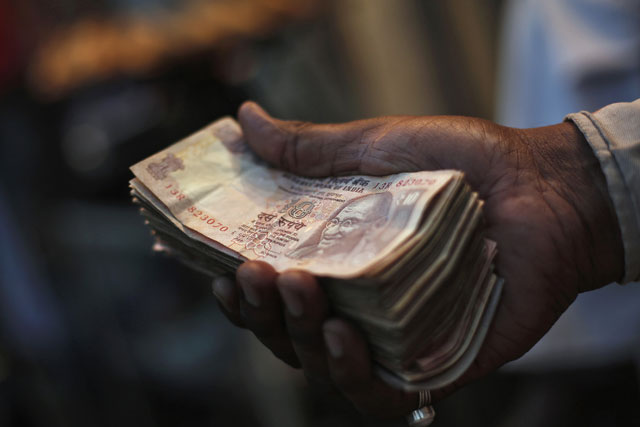Most state-run banks, which have announced September quarter numbers so far, have shown significant additions in their bad loan kitty even though healthy growth in fee, interest incomes have came to the rescue of private banks such as ICICI Bank.
The reason behind the good numbers of private sector banks is a gradual shift to safer retail loans from corporate loans. For any lender, retail lending is a safer proposition to cut down their non-performing assets (NPAs) compared with lending to companies.
Of the 18 banks that have announced earnings so far, the sharpest rise in bad loans have come from three state-run entities-Indian Overseas Bank (IoB), Andhra Bank and Punjab National Bank.
The worst hit is IoB, which saw its gross NPAs increasing to 7.35 per cent of its total loans from 5.84 per cent in the preceding quarter and 4.65 per cent in the year-ago quarter. For Andhra Bank, gross NPAs jumped to 5.99 per cent of its loan book from 5.15 per cent a year-ago and for PNB, gross NPAs rose to 5.65 percent from 5.14 percent.
As against this, bad loan levels of private banks have remained at same levels or stood with a marginal increase. Of the nine PSBs, which announced numbers so far, total gross NPAs have grown to Rs 64,248 crore compared with Rs 49,456 crore in the corresponding period in last year. As compared with this, total gross NPAs of private banks have only marginally risen to Rs 22,742 crore from Rs20,073 crore.
Why such a rise in NPAs?
State-run banks are reaping the results of their careless lending, which they did in recent years. Most of these banks have lent to small and medium sized companies, in some cases large companies, with lower credit quality to expand their loan books, whereas private banks have taken a cautious approach by focusing on credit quality.
Kolkata-based United bank example is one of the examples of scrupulous corporate lending resulting in financial stress.
In PSBs, where chairman and top officials keep changing in 3-5 years, typically the focus is given to show better business numbers even at the cost of sacrificing the sacred rules of lending-give money to only those, who have the capacity to pay back. Despite lower credit-rating, many companies received generous assistance from state-run lenders.
The motivating factor for a sarkari banker is meeting the annual credit growth targets, which has a direct correlation with their career fortunes.
“In the case of PNB, the bank had engaged in lending to lower rated corporations in recent years, chasing better yields. That practice is hitting them back now,” said Abhishek Kothari, research analyst, Quant Capital.
“In the case of other state-run banks too, rampant lending to small companies have backfired. These companies are hurt by lower production, which, in turn, have impacted their repayment ability is hurting them now,” said Kothari.
To be sure, careless lending is only one side of the problem.
As FirstBiz has highlighted earlier, there are multiple aspects that have resulted in the bad loan pile of state-run banks, which include forced lending by the government into certain sectors such as agriculture and operations of corporate-banker-politician nexus at work for interested-party lending.
But careless lending to undeserving companies and laxity in following prudential norms with single-minded focus on loan book expansion could seriously hamper the financial health of public sector banks, which constitute 70 percent of the total banking assets.
Again, bad loans are one side of the problem. On the other hand, restructured pile is growing at a faster pace.
Total live cases under corporate debt restructuring channel are over Rs 2.6 lakh crore, while that under bilateral channel would work out around the same.
A rough calculation would show the total pile of stressed assets (bad plus restructured assets) is about 14 per cent of total loans given by banks.
Weaker public banks would mean massive capital implications for a fiscal-constrained government and threat to financial stability of an aspiring economy. It is high time the Modi-government to act what it preach-creating a free market.
And the only way out is to privatize public-sector banks, which can change sarkari banks as better institutions.
The government has no business to be in business.


)
)
)
)
)
)
)
)
)



